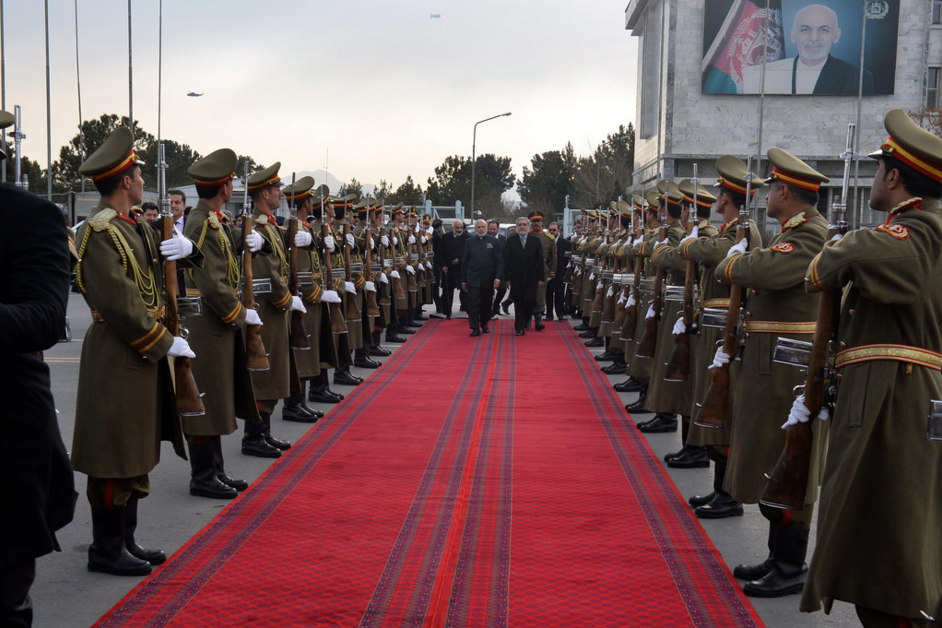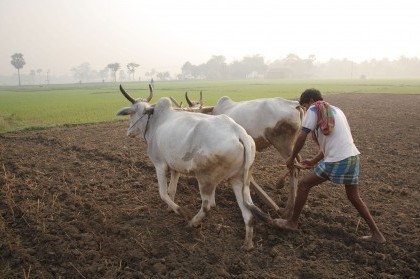Countering military cyber espionage
The Indian military faces persistent cyber espionage challenges, especially from social media platforms. It’s time for a pro-active approach.
 Courtesy: Wikipedia
Courtesy: Wikipedia
The Indian military faces persistent cyber espionage challenges, especially from social media platforms. It’s time for a pro-active approach.
 Courtesy:
Courtesy:
The Latin American region already identifies with India through its pop culture, so India needs to capitalise on this goodwill to deepen its diplomatic relations with the region.
 Courtesy: Ministry of External Affairs / Flickr
Courtesy: Ministry of External Affairs / Flickr
A more robust foreign policy initiative is required for India to be seen as a serious player in the future of Afghanistan. Building dams and roads has ensured its presence as a partner in rebuilding the country, but its conservative handling of Afghan issues must be challenged, perhaps by following the Iran route, to push forward its geostrategic interests.

Ambassador Rajiv Bhatia, Distinguished Fellow, Foreign Policy Studies, Gateway House delivered a lecture on India's Act East Policy at Jadavpur University, Kolkata on 10 March, 2016 as part of the Ministry of External Affairs' 'Distinguished Lecture Series.'
 Courtesy: Wikipedia
Courtesy: Wikipedia
With a cessation of hostilities been brokered by Russia and the United States, the conflict in Syria has entered a tense pause. India has had a bystander attitude to the conflict in Syria. However, with the truce expected to be short, does India have the incentive or the option to depart from its current position, and deepen its engagement in Syria?
 Courtesy: Wikipedia
Courtesy: Wikipedia
With the increase in allocation to the agriculture sector in Budget 2016, the Modi government has revealed a renewed tilt towards rural India. How this financial roadmap will lead to revitalizing agriculture and developing rural India will depend on the politics.
 Courtesy: Wikipedia
Courtesy: Wikipedia
The WTO judgment on the India-U.S. dispute on solar panels shows how rules across different international regimes – climate change, trade and nuclear power – favor the countries which set those rules. India must deepen its participation in such multilateral fora to protect its interests.
 Courtesy: ustr.gov
Courtesy: ustr.gov
The Trans-Pacific Partnership has dropped strong Intellectual Property Rights regulations on India’s doorstep. The implications of these regulations could affect India’s own policies, as well as her global aspirations towards the potential Regional Comprehensive Economic Partnership.
 Courtesy: Navaneeth Unnikrishnan / Wikipedia
Courtesy: Navaneeth Unnikrishnan / Wikipedia
A tectonic shift is occurring in the science landscape, wherein newly-developed nations are audaciously investing in frontier scientific research at par with developed nations. India is game to join this new wave of advancement, but its research-funding mechanisms are deficient. Can Indian philanthropy endow indigenous R&D?
 Courtesy: Wikimedia
Courtesy: Wikimedia
Saudi Arabia, Russia and other oil producers are trying to cap oil production to support prices. Such distortions are unlikely to work. India should be more concerned about the long term rise in oil prices due to falling investment in exploration and production – and should protect itself by acquiring oil and gas assets to cover its energy needs.